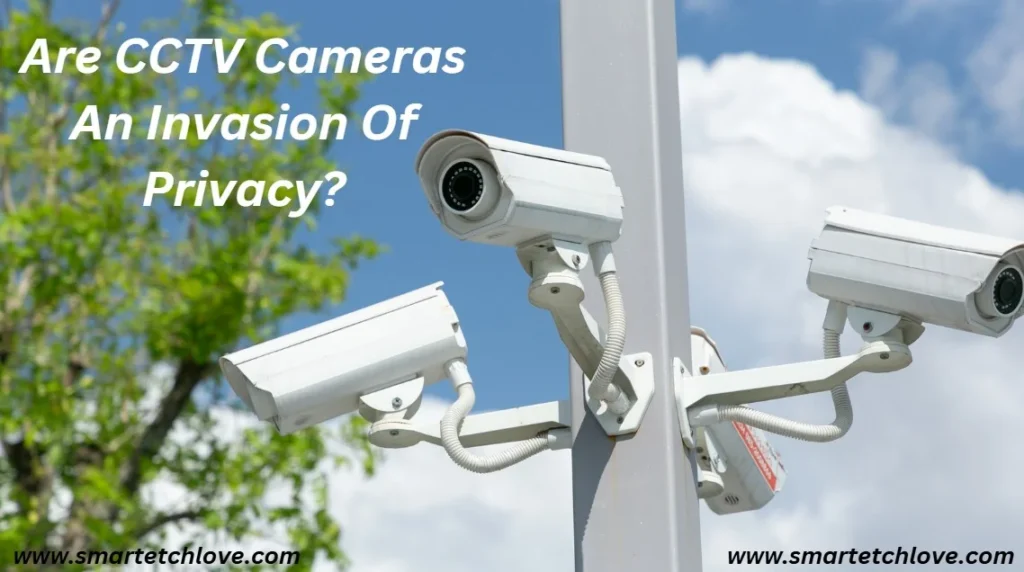As urban environments become increasingly monitored, the question “Are CCTV cameras an invasion of privacy?” looms larger than ever.
Closed-Circuit Television systems are installed for various reasons, primarily to enhance security and deter crime.
However, their pervasive presence in public and private spaces raises significant concerns about individual privacy rights.
Many people feel uneasy knowing they are being watched, leading to debates about the balance between safety and personal freedom.
In this guide, I will explore the implications of CCTV surveillance, its impact on privacy, and the legal frameworks designed to protect individuals in an increasingly monitored world.
Are CCTV Cameras An Invasion Of Privacy?
CCTV cameras can be seen as an invasion of privacy, particularly when they are placed in areas where individuals expect a degree of personal privacy, such as restrooms or private homes.
While proponents argue that they enhance security and deter crime, critics raise concerns about the potential for constant surveillance and misuse of footage.
The balance between safety and privacy rights often sparks heated debate, highlighting the need for clear regulations to protect individual freedoms while addressing security needs.
The Role of Technology in Privacy
As technology evolves, so do the capabilities of CCTV systems. Innovations like facial recognition and artificial intelligence raise additional privacy concerns.
While these technologies can improve security, they also increase the potential for misuse. It’s essential to carefully consider how these advancements are implemented and regulated.
Looking ahead, I see a need for more robust discussions about the future of surveillance. As technology continues to advance, society must confront the ethical implications of these developments.
Policymakers, tech developers, and the public must work together to create a framework that prioritizes both security and privacy.

Is CCTV A Threat To Privacy?
CCTV can indeed be seen as a threat to privacy, especially in public spaces where individuals may feel they are constantly being monitored.
This surveillance can erode anonymity and create a sense of discomfort, leading people to alter their behavior.
Additionally, concerns about data misuse—such as unauthorized access to footage or improper handling of recordings—further amplify these privacy issues.
While CCTV serves important security functions, it raises valid questions about the balance between safety and individual privacy rights.
How Do You Know If A Camera Is Watching You?
Determining if a camera is watching you can be challenging, but there are a few signs to look for. First, check for visible cameras in common areas, like stores or public spaces.
Many cameras have a small light or indicator that activates when recording. Additionally, look for unusual objects that could conceal a camera, such as smoke detectors or picture frames.
If you suspect surveillance in a private space, consider that there may be laws regarding consent for recording, and you might want to consult local regulations or seek professional help for thorough checks.
Frequently Asked Questions (FAQs)
1. Are CCTV cameras legal?
Yes, CCTV cameras are legal in many places, but their use is subject to specific regulations. It’s important to comply with local laws regarding signage, data protection, and consent, especially in private spaces.
2. Can I be recorded without my consent?
In public spaces, you typically cannot expect privacy, so being recorded by CCTV is generally legal. However, in private areas, consent may be required depending on local laws.
3. How can I tell if a CCTV camera is watching me?
Look for visible cameras, blinking lights, or signage indicating surveillance. Reflections in windows may also reveal hidden cameras.
4. What are my rights regarding CCTV footage?
You have the right to know if footage contains you and how it is used. Depending on local laws, you may be able to request access to the footage or seek its deletion if it violates privacy regulations.
5. What can I do if I feel my privacy is violated by CCTV?
If you believe your privacy is being compromised, you can file a complaint with local authorities or data protection agencies. It may also be beneficial to discuss your concerns with the organization operating the cameras.
Conclusion
The debate over whether CCTV cameras constitute an invasion of privacy remains complex and multifaceted.
While they undeniably enhance security and help deter crime, their presence can also lead to feelings of discomfort and a loss of anonymity.
As technology advances and surveillance becomes more sophisticated, it is crucial to strike a balance between the benefits of monitoring and the protection of individual privacy rights.
Clear regulations, transparency in usage, and public engagement are essential to addressing these concerns.
Ultimately, society must work together to ensure that surveillance practices respect personal freedoms while still providing a safe
- How to Get Water Out of AirPods? Here’s Solution - November 21, 2024
- Are AirTags Worth It? – [Depends on You] - November 21, 2024
- How to Replace a Lost AirPod? - November 21, 2024
